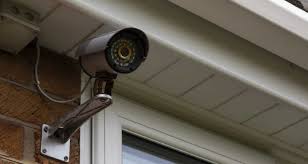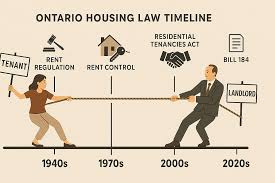Moving to Canada is exciting, but finding your first home to rent can feel overwhelming. Between understanding leases, deposits, and different rules across provinces, newcomers often face challenges when navigating the rental market. This guide breaks down the essentials you need to know before signing your first lease.
Tenant Rights in Canada
One of the most important things to understand is that Canada has strong tenant protection laws. While rules vary by province, some general rights apply nationwide:
Safe and habitable housing – Landlords must provide a property that meets health, safety, and maintenance standards.
Privacy – A landlord must give notice, usually 24 hours, before entering your unit (except in emergencies).
Freedom from discrimination – Housing providers cannot refuse to rent to you based on race, religion, gender, family status, or other protected grounds.
Each province has a rental authority (such as the Landlord and Tenant Board in Ontario or the Régie du logement in Quebec) that handles disputes between landlords and tenants.
Deposits and Upfront Costs
When you move into a rental, landlords may request deposits. However, the type and amount depend on where you live:
Ontario: Only a rent deposit (usually one month’s rent) is allowed; security deposits are not.
British Columbia and Alberta: Damage deposits are permitted, typically capped at half a month’s rent.
Quebec: Landlords cannot ask for deposits beyond the first month’s rent.
Other costs may include the first month’s rent upfront, utility hookups, and sometimes key or fob deposits. Always ask for receipts and keep copies of all transactions.
Lease Agreements
Your lease is a legal contract between you and your landlord. Most provinces have a standard lease form to make things clearer and fairer. A lease usually includes:
Rent amount and payment schedule
Duration (fixed-term, such as 12 months, or month-to-month)
Rules on pets, smoking, and guests
Responsibility for utilities and maintenance
Before signing, read everything carefully. Don’t be afraid to ask for clarification or seek translation if English or French is not your first language. Remember, verbal agreements are harder to enforce—always get it in writing.
Regional Differences
Canada’s rental rules are governed provincially, so knowing local regulations is key. For example:
Ontario has strong rent control in place for many units, limiting annual rent increases.
Quebec requires landlords to declare the lowest rent charged in the past year, giving tenants more bargaining power.
Alberta has fewer rent controls, meaning prices can increase more freely after a lease ends.
British Columbia has a capped annual rent increase set by the provincial government.
Because of these variations, it’s wise to research the specific rules in your province or territory before committing to a rental.
Final Thoughts
Renting in Canada as a newcomer may seem daunting, but with the right knowledge, you can avoid common pitfalls and protect your rights. Always review your lease carefully, understand what deposits are allowed, and learn the provincial rules that apply to your new home. It is also suggested to consult with the provincial rental authorities before engaging in a lease. By taking these steps, you’ll be well on your way to a smooth rental experience in Canada.
Search
Categories
Recent posts
Tags
- a louer
- affordable apartments Toronto
- affordable housing
- affordable housing solutions Canada
- Air Filters
- air quality
- apartment
- apartment close to public transport
- apartment for rent
- apartment for rent montreal
- apartment for rent Toronto
- apartment insurance
- appartement
- appliances
- ARTICLE
- available for rent
- background check
- bacteria
- best city to live in canada
- best healthcare
- bicycle
- bicycle path
- bike lane
- bike path
- bikes
- bill 16
- burglar
- buy a house
- buying a house
- carbon monoxide detector
- cars
- centris
- city
- cleaning
- cleaning products
- cleaning wood floors
- closet
- closet space
- clothing organizer
- compact rental units
- condo
- condo association laws
- condo fees
- condo for rent
- condo insurance
- construction budget
- construction contractors
- construction cost
- credit check
- decorating room
- digital transaction
- door lock
- doors
- downtown micro apartments
- electricity
- employment verification
- energy consumption
- energy cost
- energy saving
- engineered hardwood
- fire alarm
- fire detector
- fire extinguisher
- floor
- flooring
- for rent
- For rent in Montreal
- For rent in Toronto
- For rent in Vancouver
- for sale
- furniture
- gas
- healthy candles
- healthy lifestyle
- home
- house
- house for rent
- house for sale
- house garden
- house insurance
- house locks
- house plants
- immigrant
- importance of water leak detector
- indoor plants
- insurance
- intergenerational home
- intergenerational living
- interior designer
- investment
- landlord
- lease
- lease responsibility
- long term care facility
- low crime
- mattress
- micro-apartments Vancouver
- micro-units Toronto
- mls
- move to canada
- moving company
- Moving to canada
- moving truck
- multigenerational home
- multiplex
- nano-suites
- nano-suites Toronto
- new apartment
- new color
- oil
- old age home
- online house purchase
- Ontario
- paint colors
- passive income
- pet friendly apartment
- pet friendly plants
- planning for vacation
- plants
- porcelain tile
- property
- questions for apartment rental
- real estate
- real estate agent
- real estate broker
- real estate online
- real estate transaction
- realtor
- renal history
- rent
- rent an apartment
- rent control
- rent obligations
- rental
- rental board
- rental scam
- renting
- residential income
- residential lease
- residential rental
- revenue property
- safe area
- safe candle in apartment
- safe candle in house
- safe candles
- safety
- scam
- security
- sell a house
- seniors residence
- small apartments Vancouver
- smoke detector
- social media and real estate
- soy candle
- soy candles made with essential oils
- storage space
- student apartment
- student housing
- tenant
- tiny rentals Canada
- traffic
- trending color
- trending paint
- university student rental
- ventilation
- vinyl floor
- water alarm
- water damage
- water leak detector
- window frame
- window manufacturer
- windows
- wood floors



